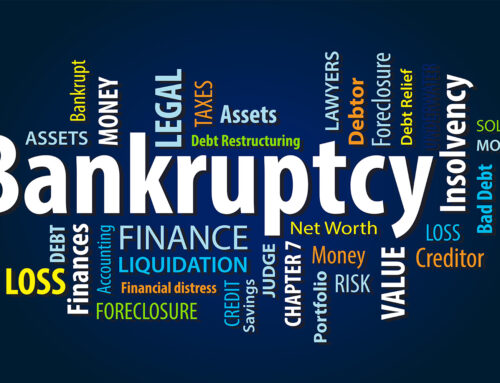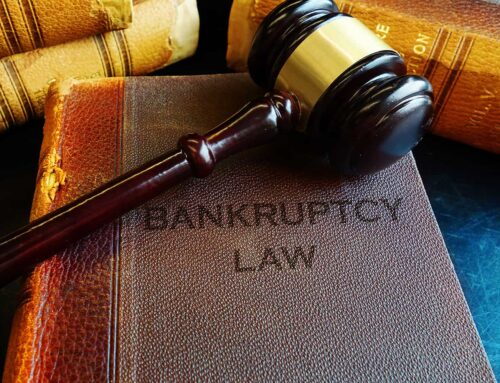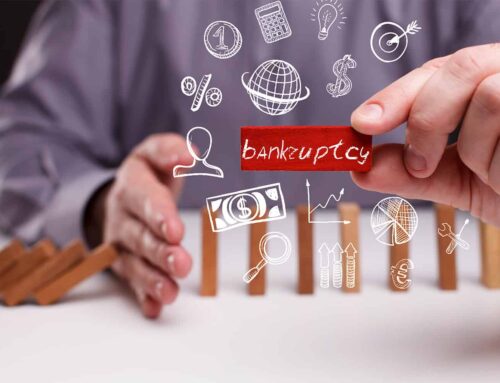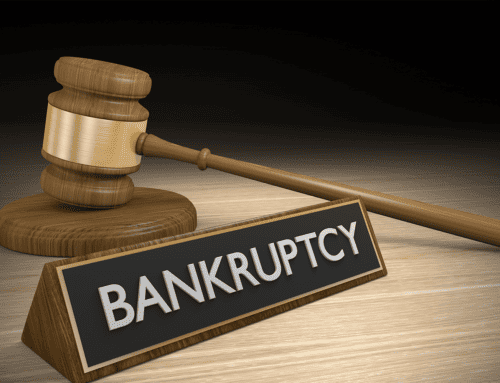Bankruptcy laws address the hard reality that unfortunate situations and bad decisions can occur in the lives of ordinary people. However, wiping out many of your debts is not like winning the lottery. It comes with consequences, both good and bad. Here are some examples of what you can expect for the short and long haul if you choose to file a bankruptcy claim.
Immediate Outcomes From Bankruptcy Filing
Exactly what happens after you file bankruptcy paperwork in a federal court in California depends on whether you file for Chapter 7 bankruptcy. Since an informed choice revolves around your individual situation, it’s imperative to get experienced legal advice before taking action.
Your Cash Outflow May Slow
If credit card and other unsecured debts make up a significant portion of what you owe, bankruptcy should either clear or reorganize these obligations, depending on the chapter. This translates to fewer payments or lesser amounts of money paid each month. Bankruptcy does not erase all debts, however. If you owe child or spousal support or tax debts, for example, you still must pay them.
Your Contacts From Creditors Should Cease
In the plus column, harassing phone calls, texts, emails, and letters from bill collectors and creditors come to an abrupt halt once the debtor files a bankruptcy petition. The federal court issues an order called an automatic stay upon filing, and strict laws apply to any measures creditors may take. Any debt collection must go through official documents and procedures outlined by the court.
You May Get Breathing Space for Mortgage, Car Payments, and Utility Bills
While bankruptcy may not save your mortgaged property or car, the automatic stay issued when you file temporarily halts foreclosures, repossessions, and utility disconnections. Options for keeping a home or vehicle vary with the type of bankruptcy.
You May Have To Surrender Items or Property You Value
Unlike states that follow federal bankruptcy law exemptions, California residents must choose from one of two California exemption tables. Selecting the one that benefits your situation is important.
Most of the exemptions listed in the tables allow a maximum value. For example, the Section 704 exemption table lets you keep jewelry, art collections, or heirlooms worth up to $8,725. If you inherited your grandmother’s emerald ring valued at $22,000, you will likely have to give up this family keepsake.
Your Financial Privacy Goes Out the Window
For some people, this is the biggest downside to relief received from bankruptcy. Once filed, all bankruptcy proceedings become a matter of public record. This may involve public notices to creditors in newspapers or letters the court sends to relatives or friends who made loans.
Continuing Effects of a Bankruptcy
Once the immediate fallout has settled from bankruptcy, filers hope for a normal routine with a clean financial slate. However, persons with a bankruptcy on their record still face challenges during the ten years it appears on credit reports. In some cases, bankruptcy may carry less weight as time goes along, especially with responsible handling of finances.
You May Experience Difficulty Getting a Job, Taking Out a Loan, or Finding a Place To Live
Many employers, lenders, and landlords consider a bankruptcy filing on an applicant’s record a warning sign that future problems may arise. Be aware that in some cases, your previous bankruptcy may put up barriers as you search for employment or living quarters.
Your FICO Score Takes a Hit
While probably expected, it’s another reason you’ll find roadblocks as you attempt to get on with your life. You can rebuild your credit after going through bankruptcy. In fact, most Chapter 7 filers find that their credit score is higher 12 months after filing than it was on the day of filing.
Your Car Insurance Premium May Escalate
This surprises many people, but it’s legal for an insurance company to consider bankruptcy in setting rates. Insurers often use credit scores as part of the criteria they review to arrive at the premiums charged for a policy.
You’re Barred From the Bankruptcy Route Again for Several Years or More
Once again, these restrictions depend on the type of bankruptcy. With Chapter 7, you must wait seven years before filing again. In the case of Chapter 13 bankruptcy, the waiting time is two years between filings.
We Can Help With Difficult Choices
Filing for bankruptcy provides relief from collection attempts and gives you a chance to start over. Unfortunately, your financial reputation, credit score, and future lifestyle choices also take a hit. If waves of debt threaten to overwhelm you, let the Law Offices of Brent D. George give you a realistic picture of what to expect after bankruptcy. We can help you make an informed decision about filing for Chapter 7 bankruptcy or perhaps even pursuing a different option for your financial woes. Contact us today for a free consultation.







